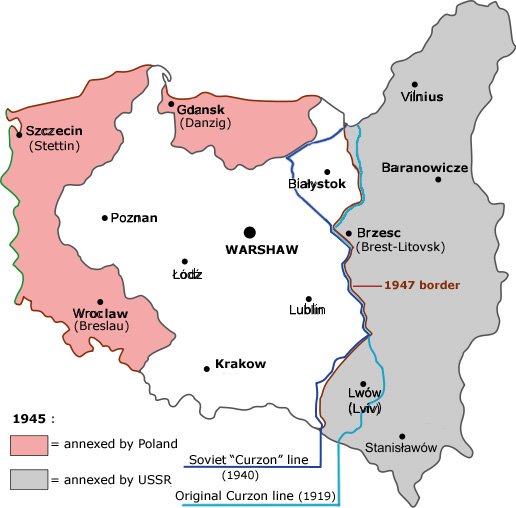As Dachs wrote, since 3rd May Constitution of 1791 the previous division for "The Crown of the Kingdom Poland" and "The Grand Duchy of Lithuania" was abolished. Poland became a unitary state in 1791.
That would be Poland Lithuania became a unitary state in 1791. Funny isn't it, that that just slips away so easily between thoughts.
The point is this. Poland has no historical claim to territory east of the Curzon line greater than Russia, or Lithuania. It has no legal claim greater than Russia, since as mentioned, the partitions were every bit as legal as the administrative changes within the Commonwealth that reallocated the Ukraine from the GDL to the Polish Crown. And it has no national claim greater than the other nationalities that resided in those lands alongside the Poles.
As a state, post WWI Poland was founded on the principle of national self-determination (in particular, Polish nationalism, which makes it a rather poor claimant on being the legitimate sole successor of the Polish Lithuanian Commonwealth) which makes the third the most relevant. As such, the Curzon line, or some approximation thereof, being the closest thing to a national boundary, is also arguably the most legitimate place to put the state border.
This is not to say Polish expansion east of the line is wrong, or that it rightfully belongs to the Soviets, or anyone else. But can we please skip any arguments based on Poland somehow having some sort of special, uniquely moral, claim?



